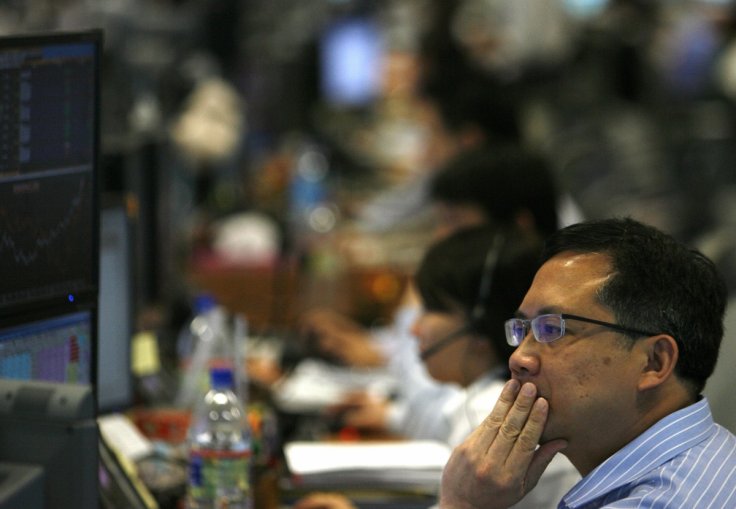
Most Asian share markets slipped on Monday as investors waited for more clarity on the Sino-U.S. trade talks after recent negotiations, while oil gained more than 1% as Middle East tensions remained elevated.
Analysts said investor sentiment was fragile with civil unrest in Hong Kong, tensions in the Middle East and worries over whether the United States and China would sign a trade deal soon. Moves were further exaggerated by low volumes as Japanese markets were shut for a public holiday.
Chinese shares opened in the negative territory, with the blue-chip index down 1.5%. Hong Kong's Hang Seng index was 0.8% weaker after a weekend of sometimes violent protests that saw pro-democracy activists vandalise a railway station and shopping mall.
South Korea's Kospi was a touch weaker after disappointing trade data while Australian and New Zealand shares bucked the trend and were both about 0.3% higher.
That left MSCI's broadest index of Asia-Pacific shares outside Japan down 0.3% at 509.94 points. It is still up more than 3% so far in September.
"There are real concerns about the impact on economies from the trade dispute," said Michael McCarthy, Sydney-based strategist at CMC Markets. "People are probably getting an idea that this will be a long negotiation. And the longer it lingers the more impact it will have economically."
E-mini futures for U.S. S&P 500 and the Dow, however, climbed nearly 0.4% each.
Over the weekend, the U.S. Trade Representative's office issued a brief statement characterising the two days of talks with China as "productive." It added that a principal-level trade meeting in Washington would take place in October, as previously planned.
China's Commerce Ministry, in a brief statement, described the talks as "constructive", and said they had also had a good discussion on "detailed arrangements" for the high-level talks in October.
Additionally, the United States removed tariffs from more than 400 Chinese products in response to requests from U.S. companies.
Despite the improved tone, markets still remain unconvinced about the possibility of deal soon.
Investors were rattled by news on Friday that Chinese officials unexpectedly cancelled a visit to U.S. farms this week following their two days of negotiations in Washington.
One Shanghai-based analyst at Tebon Securities said the cancellation had hit investor sentiment and could be a major drag on Chinese A-shares in the near-term.
News that five Yemeni civilians were killed in air strikes by the Saudi-led coalition further soured investor appetite.
OIL SHOCK
Mideast tensions and worries about oil supplies helped Brent crude futures jump 1%, or 64 cents, to $64.92 a barrel, while U.S. crude futures rose 0.98%, or 57 cents, to $58.66 a barrel.
The Pentagon has ordered additional troops to be deployed in the Gulf region to strengthen Saudi Arabia's air and missile defences following an attack on Saudi oil facilities.
U.S. Secretary of State Mike Pompeo said on Sunday the additional troops are for "deterrence and defence" and Washington aimed to avoid war with Iran.
Markets will closely watch September manufacturing activity surveys due from the United States and European Union later in the day for any signs of a rebound.
Action in currency markets was muted.
The dollar gained 0.14% against the safe haven Japanese yen to 107.69 after easing 0.5% last week. The risk-sensitive Australian dollar was up 0.24% at $0.6780.
The euro was a shade higher as was the British pound. That left the dollar index slightly weaker at 98.449.
With risk appetite waning, spot gold pared early losses to be flat at $1,516.39 an ounce.








